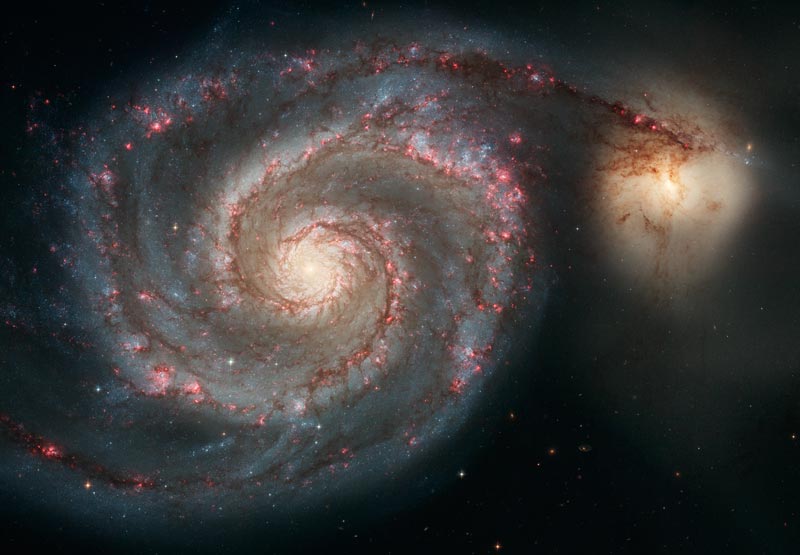I have a friend who’s a medical professional, but is incredibly skeptical about a wide variety of scientific topics, physics in particular. He doesn’t believe a word I tell him about anything to do with physics, from the equivalence between mass and energy to the power output of the sun. He doesn’t believe, for instance, that light is composed of photons. When I press onward, trying to establish a baseline of mutual understanding between us, digging for a common denominator, he will eventually relent that “of course the moon causes the tides!” or “of course the sun burns hydrogen!”, then look at me as if I’m an idiot. Yet this same person will believe the most ridiculous fishing anecdotes that you can possibly imagine. He’s a self-described skeptic, and for the life of me, I can never isolate the boundaries of his skepticism. But it is fun trying. Sometimes it’s difficult to resist the obvious temptation: “no, the sun actually burns coal…”.
During the course of releasing my book, which contains a number of new physics ideas, clouds of skepticism have enfolded me like a weather pattern. Remarks such as “I’m too skeptical to read something like that” or “I’m skeptical about anything that the scientists don’t agree with” are common. I’m left with the nagging suspicion that most skeptics don’t really know what it means to be a skeptic. Or, to quote the wonderful movie The Princess Bride, “I don’t think that word means what you think it means…”. The ‘skeptics’ that I’ve met seem to treat it like fashion, where they are free to choose, for no apparent reason, the subjects to which their skepticism can be liberally applied.
I am guilty of this as well, but I like to think that I reserve it for extreme examples. If I get an email from someone claiming to have been Werner Heisenberg’s confident, and who has secret knowledge of the inner workings of Area 51, I tend to be a little skeptical. If, however, someone thinks that they can produce a photovoltaic cell with an efficiency of 30%, I’ll listen for a while, trying to determine if what they say makes sense, regardless of their background. Skepticism is a powerful tool, but only if you use it for the purpose for which it was originally intended. It is not a shield that protects ignorance; it is a looking glass that promotes introspection. If what you believe can’t survive a few playful, penetrating questions, perhaps there’s something wrong with it. If there are topics that are, because of their nature, simply beyond question, or if you think consensus constitutes evidence and won’t ask questions if other people seem convinced, you might not be a skeptic after all. If you’re the only one in the room asking questions, you probably are a skeptic. True skeptics are a definite minority.
It is with no small amusement or irony that, by releasing my book, I’ve incurred the gestalt wraith of thousands of would-be ‘skeptics’ across the globe. The reason I wrote the book, after all, is because I am a skeptic. If you tell me something that isn’t entirely evident or seems a little odd, I will be asking questions. In some cases, lots and lots of questions. If you tell me the universe came from a primordial fireball 13.7 billion years ago, I’m going to keep asking questions until this story makes sense, and your answers don’t carry more weight just because you are the world’s leading cosmologist and believe in them with all your heart. Regardless of how artfully and strenuously we try to dodge the universe’s inevitable and immutable nature; regardless of how heroic our mathematics or strained our interpretations, logical consistency continues to matter, because it is the glue from which comprehension emerges. A lie told a thousand times might seem more believable than the truth, but only if you’re not a skeptic, and repetition doesn’t make it any truer.
So when the physicists tell you that the universe “doesn’t need to be rational” or “has nothing to do with common sense” or “your question is meaningless”, little bells should be going off in your head. I’m not saying that you need to treat modern cosmology like a scam, but it helps.
